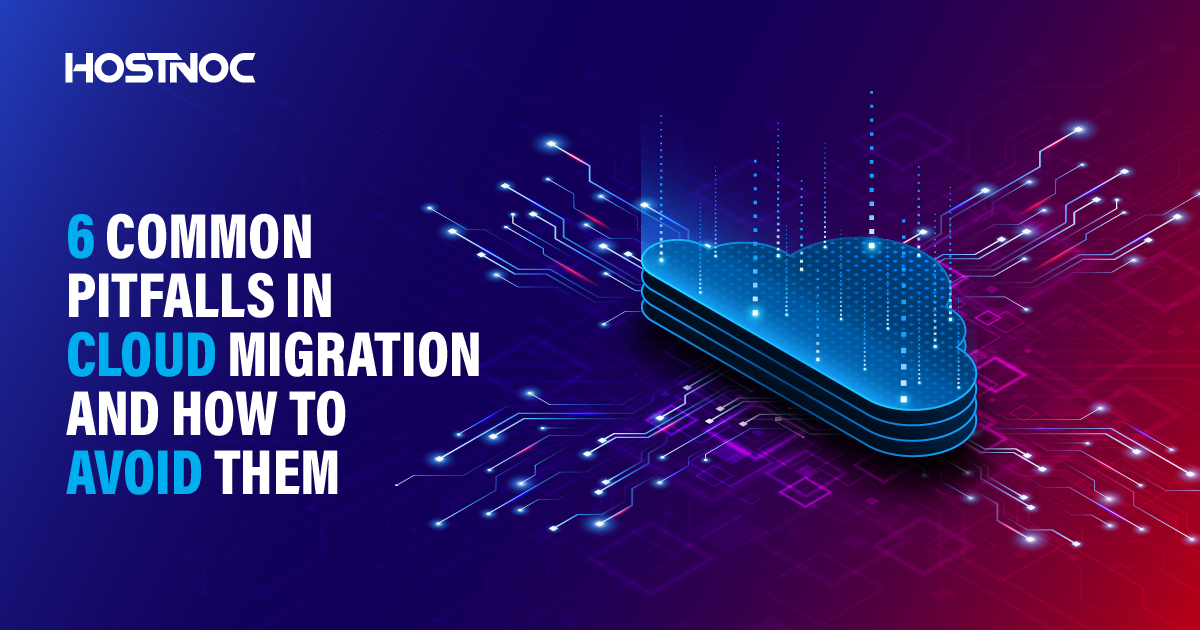Blogs

Hackers Hate This 10-Step Server Hardening Checklist
February 27, 2025
Case Study: How MKBHD Earns Through Affiliate Marketing
March 7, 20256 Cloud Computing Essentials That Unlock Powerful Benefits
Cloud Computing Essentials has become essential for businesses seeking to stay competitive and efficient in the digital age. It offers scalable solutions, streamlined operations, and enhanced security, enabling organizations to access resources on demand without the need for expensive infrastructure.
For industries like grocery store distributors, cloud computing provides real-time inventory management, improved supply chain coordination and cost-effective storage, allowing businesses to respond quickly to market changes and customer needs. By adopting cloud solutions, companies can unlock increased agility, better collaboration and the ability to scale their operations as they grow.
Understanding How Cloud Computing Essentials Unlock Benefits
Cloud computing is the delivery of computing services such as servers, storage, databases, networking, software, and analytics over the internet. It allows businesses to rent these services instead of owning and maintaining physical infrastructure.
There are three main types of cloud models.
1. Infrastructure as a Service (IaaS):
Infrastructure as a service provides virtualized computing resources over the internet. Users can rent virtual machines, storage, and networking, avoiding the need for heavy capital investment.
2. Platform as a Service (PaaS):
Platform as a service offers a platform that allows businesses to develop, run, and manage applications, including advanced projects like AI software development, without having to worry about the infrastructure.
3. Software as a Service (SaaS):
With software as a service, businesses can access software applications over the internet without the need to install or maintain them on their own systems.
The cloud ecosystem is designed to be flexible, scalable, and cost-efficient. That is why they offer businesses an array of services to meet their needs.
Benefits of Cloud Computing Essentials
Cloud computing offers a multitude of benefits for businesses, ranging from operational efficiency to scalability. Here are some of the most notable advantages:
1. Cost Efficiency
One of the most compelling reasons businesses adopt Cloud Computing Essentials is its cost-effectiveness. Instead of spending large amounts of capital on purchasing hardware and software, businesses can pay for cloud services on a subscription basis, which often results in lower upfront costs. Additionally, because the cloud allows for on-demand resource allocation, businesses only pay for what they use, leading to further savings. Similarly, tools like The QR Code Generator (TQRCG) have facilitated instant and secure payments, allowing customers and businesses to complete transactions effortlessly without the need for physical cash or cards.
For businesses with fluctuating demand or unpredictable growth, the ability to scale resources up or down as needed can provide significant cost savings. There is no need to maintain underutilized infrastructure, which is a common issue in traditional, on-premise data centers. You can also opt for managed cloud services from HOSTNOC to reduce the burden on the shoulders of your IT team.
2. Scalability and Flexibility
Scalability is a crucial advantage for businesses that experience seasonal demand fluctuations or growth spurts. With Cloud Computing Essentials, businesses can quickly adjust their resource allocation, whether it is expanding server capacity or adding new software solutions.
This means businesses are not constrained by physical server infrastructure, and they can remain agile to meet the needs of their clients. The cloud also allows businesses to be flexible in their operations. They can quickly deploy new applications, modify existing systems, and shift to new technologies with minimal downtime or disruption.
3. Improved Collaboration and Accessibility
Cloud Computing Essentials improves collaboration among teams by offering easy access to shared files and applications. Employees can work on the same project in real-time, regardless of their physical location, which is especially beneficial for remote or distributed teams. This accessibility ensures that team members have the tools they need to be productive, whether they are working from the office, at home, or on the go, especially when paired with an AI tools list that streamlines tasks.
Cloud services also provide secure access to business data and applications from any device with an internet connection. This means that employees can stay connected to their work even when traveling or working remotely. In such setups, an employee engagement software helps organizations understand how employees stay involved, communicate, and collaborate while working from different locations.
4. Enhanced Security
Security is often a top concern for businesses when considering cloud computing. However, cloud providers invest heavily in ensuring that their platforms are secure, with many offering enhanced security features like data encryption, multi-factor authentication, regular security updates, and live identity verification to help prevent identity fraud.
For businesses, this means they can benefit from enterprise-level security without the need to invest heavily in maintaining and updating their own security systems. Additionally, many cloud services offer robust data backup and disaster recovery options. In the event of a system failure or cyberattack, businesses can restore their data quickly, minimizing downtime and data loss.
5. Automatic Updates and Maintenance
Traditional software and hardware systems require regular maintenance and updates, often resulting in service disruptions and increased operational costs. With cloud computing, businesses benefit from automatic updates and patches, ensuring that their systems are always up-to-date with the latest features and security enhancements.
This reduces the burden on IT teams, as they no longer need to manage updates or perform routine maintenance tasks manually. Cloud service providers handle this, allowing businesses to focus on their core operations.
6. Disaster Recovery and Business Continuity
One of the most crucial aspects of cloud computing is its ability to provide robust disaster recovery and business continuity solutions. In the event of a natural disaster, system failure, or cyberattack, cloud providers can ensure that business operations continue with minimal disruption. Data stored in the cloud is often replicated across multiple locations, offering built-in redundancy that can protect against data loss and downtime.
Moreover, cloud-based backup systems ensure that businesses can quickly recover critical data and resume operations. This can be especially important for industries where data integrity and continuous operations are paramount.
Read more: 7 Cybersecurity Trends for 2025 According to IBM
Cloud Computing Benefits for Grocery Store Distributors
Grocery store distributors, like many other businesses, face a range of challenges, from managing supply chains to maintaining inventory and delivering products on time. Cloud computing offers several specific benefits that can help streamline these operations and improve overall efficiency.
1. Real-Time Inventory Management
Cloud-based systems allow grocery store distributors to track inventory levels in real-time, ensuring that stock levels are always accurate and up-to-date. This can help reduce the risk of stockouts or overstocking, which can lead to lost sales or wasted inventory. With real-time data access, distributors can make informed decisions about purchasing and stocking, improving operational efficiency.
2. Optimized Supply Chain Management
Cloud computing enables grocery distributors to monitor and manage their supply chains with greater precision. By integrating cloud-based solutions with suppliers and logistics partners, businesses can track shipments, identify delays, and optimize routes according to fleet card usage to ensure that products are delivered on time. This increased visibility into the supply chain helps reduce costs and enhances customer satisfaction by minimizing delays.
3. Data Analytics for Customer Insights
Cloud platforms provide advanced data analytics tools that can help grocery distributors analyze customer purchasing behaviors and trends. This insight allows businesses to better predict demand, customize their offerings, and make data-driven decisions about pricing, promotions, and product placement.
4. Streamlined Order Processing
Cloud computing enables grocery store distributors to automate order processing, reducing the need for manual intervention and improving order accuracy. Automated systems ensure that orders are processed quickly and accurately, leading to faster delivery times and a more seamless customer experience.
5. Enhanced Collaboration with Retailers
Grocery store distributors often work closely with retailers to ensure that products are stocked in stores at the right time. Cloud computing improves collaboration between distributors and retailers by providing a shared platform for communication, order management, and inventory tracking. This reduces the likelihood of miscommunication and ensures that both parties are always on the same page.
Read more: Cloud Access Security Broker: Everything You Need To Know
Cloud Computing Benefits for Other Types of Distributors
The advantages of cloud computing are not limited to grocery store distributors. Other types of distributors, such as those in manufacturing, wholesale, and logistics, can also benefit from cloud-based solutions in a variety of ways.
For example, Cloud Computing Essentials can help distributors in the manufacturing sector improve production efficiency by tracking materials, equipment, and workforce schedules in real-time. In wholesale and logistics, cloud-based systems can optimize inventory management, order fulfillment, and shipping, resulting in cost savings and improved customer satisfaction.
Moreover, cloud computing allows distributors to integrate with various third-party services, such as customer relationship management (CRM) tools, enterprise resource planning (ERP) systems, and financial platforms. This integration streamlines business operations and provides a holistic view of the entire distribution process.
Read more:
Conclusion
The Cloud Computing Essentials unlock a wealth of benefits for businesses, offering cost savings, scalability, flexibility, enhanced security, and streamlined operations. For grocery store distributors and other industries, cloud-based solutions provide the tools needed to manage inventory, optimize supply chains, and improve customer service.
Take full control of your data and performance with powerful, secure dedicated server hosting built for growing businesses.
By embracing cloud computing, businesses can unlock new levels of efficiency and gain a competitive edge in today’s fast-paced marketplace. Whether you are a small business or a large enterprise, cloud computing has the potential to transform the way you operate, helping you grow, innovate, and succeed in the modern business world.
Privacy isn’t a luxury; it’s a necessity. Get a dedicated server and lock in total control.
Cores
RAM
Storage
Location
Monthly Price
Link
AMD Opteron 3365 2.3GHz 8c/8t
16 GB DDR3
2x 1 TB (HDD SATA)
Dusseldorf, Germany
$30.95 /month
Buy Now
Intel Atom C2750 2.4 GHz 8 cores
16GB DDR3
1 x 1TB HDD
Paris, France
$34.99 /month
Buy Now
Intel Xeon D-1531 2.2GHz 6c/12t
32 GB DDR4
2x 256 GB (SSD SATA)
Paris, France
$44.50 /month
Buy Now
Intel Core i7-4790K 4GHz 4c/8t
32 GB DDR3
2x 1 TB (HDD SATA)
Dusseldorf, Germany
$48.95 /month
Buy Now
Intel Xeon E3-1220 v2 or better 3.1 GHz 4c/4t
32 GB DDR3
2× 1 TB (SSD SATA)
Amsterdam, Netherlands
$56.95 /month
Buy Now
Intel X5670 2.93 GHZ - 12 Cores / 24 Threads
16GB DDR3
1 x 240 GB SSD
Florida
$74.99 /month
Buy Now
Muhammad Osama
Featured Post
7 Ways To Keep Cloud Costs Under Control
Public cloud spending is skyrocketing, rising 20% from $561 billion in 2023 to $675.4 billion in 2024, according to Gartner. And while enterprises are modernizing applications […]
6 Common Cloud Migration Pitfalls and How To Avoid Them
Cloud migration can be a daunting process for many organizations. Whether you’re moving to the cloud for increased flexibility, cost savings, or scalability, it’s easy to […]
Current State of Cloud Security: 7 Shocking Statistics That Will Blow Your Mind
Cloud always has a bad reputation when it comes to security and privacy. The advantages, such as flexibility, scalability, and lower costs, tend to come to […]












